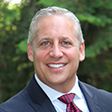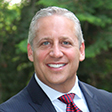The 2 Massive 401(k) Mistakes Business Owners Make, and How to Avoid Them
Offering a 401(k) is a great benefit for your employees, but did you know you could be held personable liable for your company’s plan?


Profit and prosper with the best of Kiplinger's advice on investing, taxes, retirement, personal finance and much more. Delivered daily. Enter your email in the box and click Sign Me Up.
You are now subscribed
Your newsletter sign-up was successful
Want to add more newsletters?

Delivered daily
Kiplinger Today
Profit and prosper with the best of Kiplinger's advice on investing, taxes, retirement, personal finance and much more delivered daily. Smart money moves start here.

Sent five days a week
Kiplinger A Step Ahead
Get practical help to make better financial decisions in your everyday life, from spending to savings on top deals.

Delivered daily
Kiplinger Closing Bell
Get today's biggest financial and investing headlines delivered to your inbox every day the U.S. stock market is open.

Sent twice a week
Kiplinger Adviser Intel
Financial pros across the country share best practices and fresh tactics to preserve and grow your wealth.

Delivered weekly
Kiplinger Tax Tips
Trim your federal and state tax bills with practical tax-planning and tax-cutting strategies.

Sent twice a week
Kiplinger Retirement Tips
Your twice-a-week guide to planning and enjoying a financially secure and richly rewarding retirement

Sent bimonthly.
Kiplinger Adviser Angle
Insights for advisers, wealth managers and other financial professionals.

Sent twice a week
Kiplinger Investing Weekly
Your twice-a-week roundup of promising stocks, funds, companies and industries you should consider, ones you should avoid, and why.

Sent weekly for six weeks
Kiplinger Invest for Retirement
Your step-by-step six-part series on how to invest for retirement, from devising a successful strategy to exactly which investments to choose.
There are two huge mistakes that business owners commonly make when it comes to their company 401(k)s: They don’t understand the gravity and breadth of fiduciary responsibility, and they shoot themselves in the foot with high cost structures and poor investment options.
Streamlining costs is a no-brainer. While no 401(k) plan is free, making sure you get the most for your money is something most of us can get behind pretty easily.
But fiduciary responsibility is often a wake-up call — and not taking it seriously can have significant repercussions on your business and your life. As a fiduciary, you are responsible for ensuring that the decisions you make are in the best interest of your participants, that you carry out your duties prudently, in line with plan rules and objectives, through appropriate diversification while at a reasonable cost.
From just $107.88 $24.99 for Kiplinger Personal Finance
Become a smarter, better informed investor. Subscribe from just $107.88 $24.99, plus get up to 4 Special Issues

Sign up for Kiplinger’s Free Newsletters
Profit and prosper with the best of expert advice on investing, taxes, retirement, personal finance and more - straight to your e-mail.
Profit and prosper with the best of expert advice - straight to your e-mail.
Here’s the thing: Many plan sponsors (that is, business owners who establish 401(k)s for their companies) don’t realize that as a fiduciary they are personally liable for their plan. In other words, your personal assets are on the hook in the event of a lawsuit or regulatory action by the Department of Labor.
This intimidates a lot of business owners. While some may be up for the challenge, others may want to seek help.
One solution: A “cafeteria” manager
The idea behind the fiduciary standard is that the plan should be designed to serve the end investor’s best interest. That means:
- Offering diversified investment options.
- Keeping fees reasonable.
- Putting a documented process in place for monitoring investment performance and selecting funds.
Think of it like a company cafeteria for investing: If your goal is to serve foods that are healthy and nutritionally balanced, you’ll want to offer a diversified menu of healthy options that meet a broad range of nutritional needs. You’ll want to make sure your vendors are delivering what they say they’re delivering, and that you’re not overpaying for a brand name rather than quality — all while making sure everything meets FDA approval.
To do all that, you need a process in place to manage operations — someone to decide which foods to include on the menu, where to buy them and how to make sure that you’re serving the best options in each food group. Not to mention monitoring quality, price and performance over time!
Now imagine that you’re legally liable for all of it: the structure of the menu, the cost of the bananas and the nutritional record of your vendors. It’s enough to make you want to give up, right? For a lot of companies, 401(k)s are an important benefit. It’s not worth giving yours up.
You might NOT be getting what you think you are
If you already have a plan, consider getting an independent review of your current processes and costs to make sure you’re protecting yourself and doing right by your employees. If you are just starting the process, think about working with a professional who can help you set up a robust plan structure — someone who can help you with the key elements of the plan.
Most important: Don’t just get anyone — this is where it can pay to have the right professional help. A worthwhile partner can shoulder the burden and help make sure that your fiduciary obligations are being fulfilled. They will essentially act as the “cafeteria manager” of your retirement plan, helping put the right systems in place to keep things running smoothly.
Seek out a partner who is:
Why are these issues so important?
First, you’re already operating under a fiduciary standard by having a retirement plan. Thus, it can be very helpful to get advice from someone who is also obligated to work in your participants’ best interest.
Take this example: A fiduciary has an obligation to act solely in the interest of the plan participants, paying only reasonable plan expenses. If there are five mutual funds that are trying to accomplish the same goal, an investment fiduciary will go the extra mile in making sure that the one he or she recommends is the one that best balances plan objectives with reasonable cost.
If the recommended fund isn’t the cheapest, and it doesn’t necessarily have to be, a fiduciary should be able to demonstrate the rationale behind making that decision. Equally important, this person will be able to properly document that process for your plan’s records.
In other words, the documented rationale and logic or process always has to be there, and it always has to be clearly demonstrated. An adviser who takes that responsibility can help you offer the best “healthy” choices in your plan.
Moving ahead
Good planning and a strong system of oversight are critical to making the most of your company’s 401(k). Build your plan to reduce liability, systematize oversight and reduce costs, and you’ll find that your 401(k) can go from being a headache to being one of the major benefits that you offer your employees — and yourself.
To do it, rethink your approach and take your responsibilities seriously. Consider working with an adviser who can help you shoulder responsibility for your qualified retirement plan and can work with you to create a “cafeteria” that won’t just appeal to your employees, but that will help keep your collective financial health in the best shape possible.
Written by Bradford Pine with Anna B. Wroblewska. Brad is a wealth adviser and president of Bradford Pine Wealth Group, based in Garden City, New York. BP Wealth Group assists individuals and entrepreneurs to create wealth, simplify their lives and plan for retirement.
- An Investment Adviser Representative. These advisers work under an SEC fiduciary standard with a duty to act solely in the best interest of their clients when offering investment advice.
- Able to implement and oversee your plan’s processes and procedures. Specifically, look for expertise designing a diversified investment lineup, benchmarking and monitoring performance, and benchmarking and monitoring costs.
- Eager to work with you and your team. That means a financial adviser who is ready to take calls and meet with your employees.
Profit and prosper with the best of Kiplinger's advice on investing, taxes, retirement, personal finance and much more. Delivered daily. Enter your email in the box and click Sign Me Up.

Brad Pine is a wealth adviser and president of Bradford Pine Wealth Group, based in Garden City, N.Y. BP Wealth Group assists individuals and entrepreneurs to create wealth, simplify their lives and plan for retirement. Honesty, integrity and reliability are the foundations of Pine's investment philosophy.